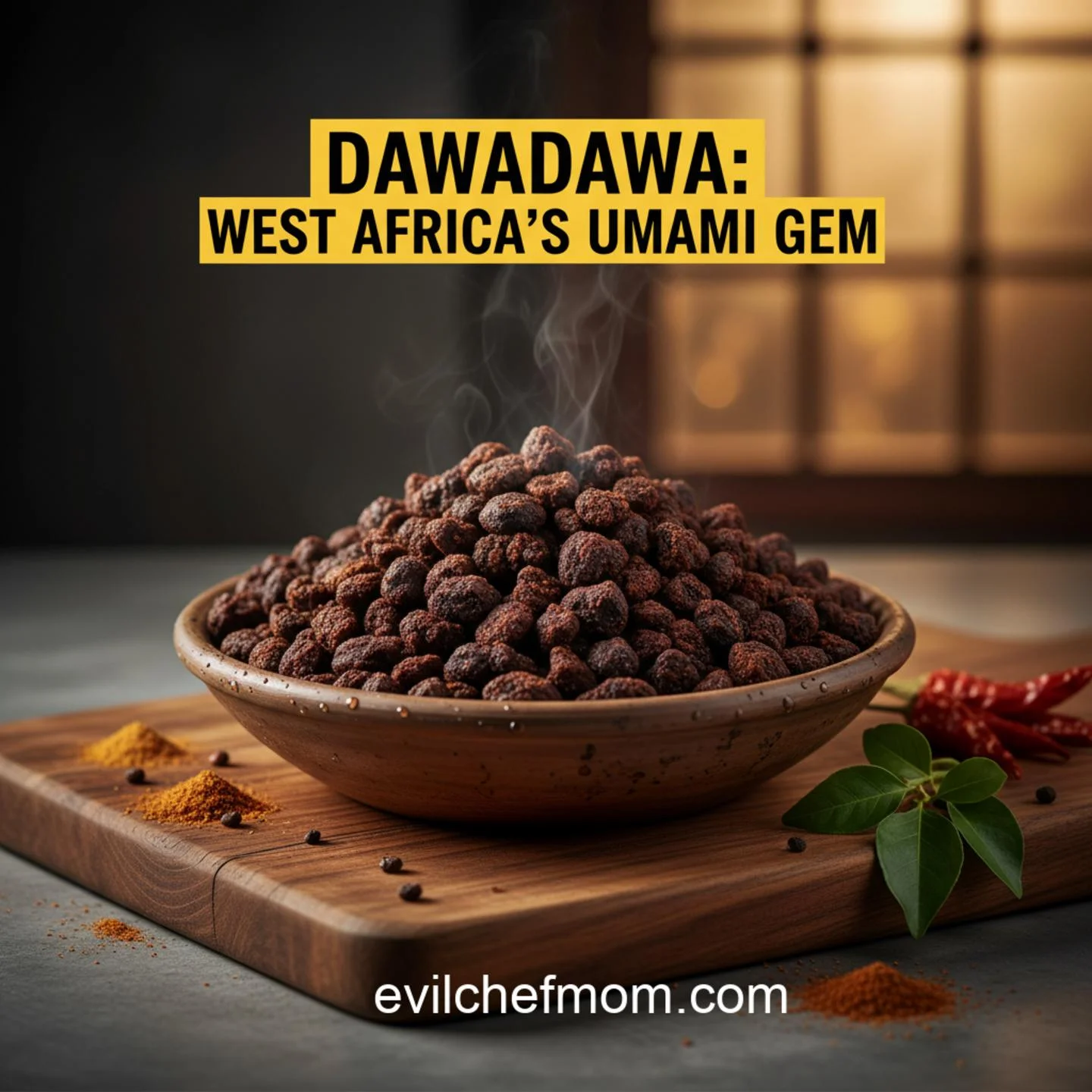Discover how to make dawadawa, a potent, umami-rich fermented locust bean seasoning essential to West African cuisine. Its unique flavor enhances soups, stews, and sauces.

Dawadawa: West Africa's Umami Gem
Discover how to make dawadawa, a potent, umami-rich fermented locust bean seasoning essential to West African cuisine. Its unique flavor enhances soups, stews, and sauces.
Ingredients
- 500 gram African locust beans dried
- Water for boiling and rinsing
- 1 tablespoon Salt optional
Instructions
- 1. Thoroughly rinse the dried African locust beans to remove any debris.
- 2. Place the rinsed beans in a large pot, cover with plenty of water, and add salt if desired. Bring to a boil and cook for 5-6 hours, or until the beans are very soft and can be easily mashed. You may need to add more water during cooking.
- 3. Drain the cooked beans and allow them to cool slightly. Gently pound the beans in a mortar or use a food processor to loosen the outer skin. Be careful not to mash them completely at this stage.
- 4. Rinse the pounded beans repeatedly to remove all the loosened skins. This dehulling process is crucial for a smooth product.
- 5. Place the dehulled beans in a clean bowl or container. Cover the bowl with a clean cloth or banana leaves and place it in a warm spot for 2-4 days to ferment. The beans will become sticky, develop a strong, pungent aroma, and a brownish color. Stir once a day.
- 6. Once adequately fermented, transfer the beans to a mortar or food processor and pound or blend them into a smooth, dark paste.
- 7. Form the dawadawa paste into small balls, cakes, or disc shapes, about 1-2 inches in diameter.
- 8. Arrange the shaped dawadawa on a clean tray or mat and sun-dry for several days until completely firm and dry. Alternatively, use a dehydrator on a low setting.
- 9. Store the dried dawadawa in an airtight container in a cool, dry place for extended shelf life.
Notes
The fermentation process is key; ensure beans are kept in a warm environment (around 30-35°C or 86-95°F) for optimal results. You can use an oven with just the light on to create a warm environment if your kitchen is cool. The strong aroma during fermentation is normal. Dawadawa can be stored dried for several months in an airtight container.






